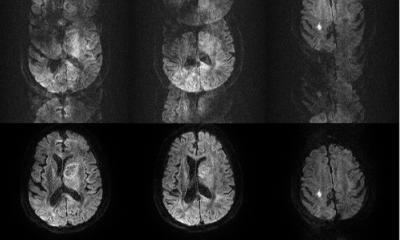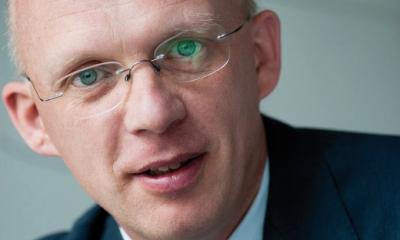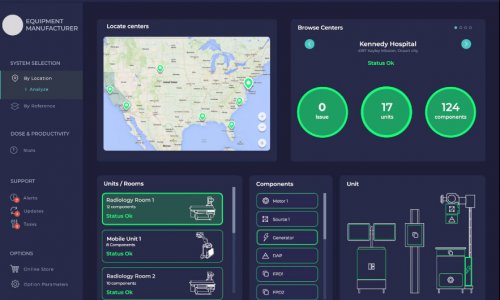Source: Pixabay/Milesl
Article • A look into the crystal ball
Experts debate predictive potential of AI
‘Hello, John? You are about to suffer a heart attack – please come to the hospital immediately!’ Will we, one day, be collected by emergency doctors even before we’re ill? If it was up to some AI experts at Medica 2018, this could be the case – soon.
Report: Wolfgang Behrends
Held during the event, the Health IT Forum examined the predictive potential of artificial intelligence – although some obstacles must be overcome to achieve perfect AI predictions.
Big data, deep learning, robotics – in recent years medicine has progressed enormously in all these areas, but prognoses on future technology are difficult. Yet, during Medica, some IT experts ventured to gaze into a crystal ball. The group included:
- Pradeep Walia, cofounder and director of Artelus
- Matej Adam from Watson Health Executive EMEA, IBM
- Dr Björn Schreiweis, Research Associate at the Institute for Medical Informatics and Statistics in Kiel University
- Jaakko Nurkka, cofounder and CEO of Cliniserve
- Dr Stefan Heinemann, Professor for Business Ethics at the FOM University of Applied Sciences for Economics and Management Essen and spokesman of the Ethics Ellipsis Smart Hospital, Essen University Hospital.
Initially, the moderator Professor Tobias Daniel Gantner, CEO of Healthcare Futurists, spoke about the main scientific driver: curiosity. ‘Researchers have always wanted to know why things happen the way they happen. Models based on big data could make this possible in a very novel way.’
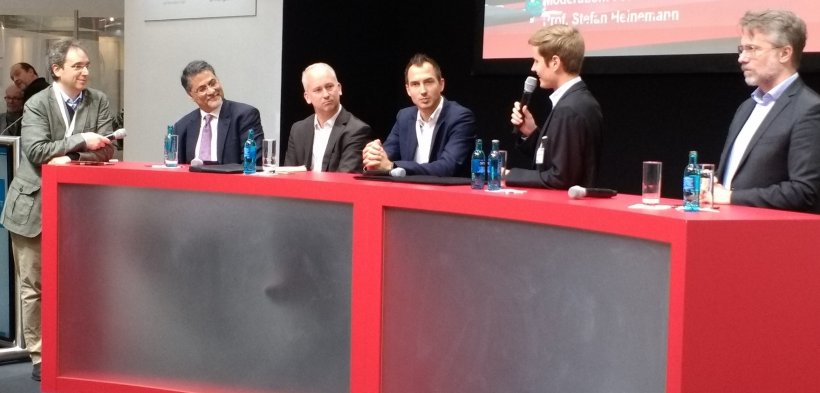
Photo: HiE/Behrends
Machine makes humans human again
It will take another 20 years until we’ll actually have enough relevant data to reliably differentiate between correlation and causality in data patterns
Björn Schreiweis
However, gathering as much data as possible to send it through an algorithm is not quite the best way, Schreiweis pointed out: first we need to find out which data really helps us if we, for instance want to predict heart attacks. ‘Even now, one of the most important tasks is to reliably navigate through the sheer mass of data and to distinguish between important and unimportant information, Adam agreed. ‘If we succeed with this, artificial intelligence can take on many tasks. Doctors and nurses would finally have more time to concentrate on the human aspect of their work.’ This centres mainly around the elimination of administrative tasks, which still make up a large part of the workload, Nurkka added.
However, there is a long way to go until then. ‘It will take another 20 years until we’ll actually have enough relevant data to reliably differentiate between correlation and causality in data patterns,’ Schreiweis observed. Current scepticism towards artificial intelligence is understandable, but unfounded, said Walia: ‘When MR imaging was first introduced, most experts were also sceptical – but now you couldn’t imagine medicine without it. Medics who deny the potential of artificial intelligence will become obsolete one day.’
They have no bread? Give them artificial intelligence!
The potential of artificial intelligence is vast, and not only for medicine, Walia confirmed. But before the technology can be introduced comprehensively some very different issues must be addressed. ‘There is no point in convincing someone of the advantages of artificial intelligence if that person does not have enough food to live on.’ Education is a decisive prerequisite required to enable people to handle new technology. An important part of technological progress is to design systems in such a way that they can be used with ease and intuitively, emphasised Nurkka.
How do we facilitate the secure handling of personal health data without limiting access to data sources?
Matej Adam
People need to understand the importance of personal medical data, Heinemann said. ‘These days, companies think of health data as a resource – but this view hinders technological progress. We need free access to anonymised health data to train algorithms.’ But, this is where the problem lies, Schreiweis countered, because real data anonymity is an illusion: ‘When sufficient data sets are available, algorithms can match individual data to individuals.’
Companies such as Google support hospitals with generous donations, Walia noted. This facilitates important progress, from which everyone will benefit ultimately. However, in return their money buys them access to research – and health data – which they use to their own advantage. Adam put it in a questioning nutshell: ‘How do we facilitate the secure handling of personal health data without limiting access to data sources?’
Recommended article
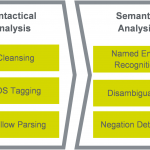
Article • The potential insights are invaluable; we should not waste this source
Medical data mining
The treasure trove of healthcare data waiting to be explored in German hospitals is immense and could provide invaluable insights. However, what about data security and privacy? Andreas Klüter, CTO of Empolis Information Management GmbH, a new business entry in healthcare IT, spoke with European Hospital about medical text mining and the need for ethics discussion.
Hope for a better future
To really utilise the enormous potential of AI in medicine, we need a system which does not view the data as a commodity, Heinemann added. ‘Then everyone would have access to the treatment they need, independent of their financial situation.’ Nurkka and Adam were equally confident – assuming that data was to be liberated from its proprietary silos in companies or hospitals and made available widely. ‘We just need to connect the data points,’ Adam concluded. ‘Then we have all the information we need for better healthcare.’
10.06.2019



